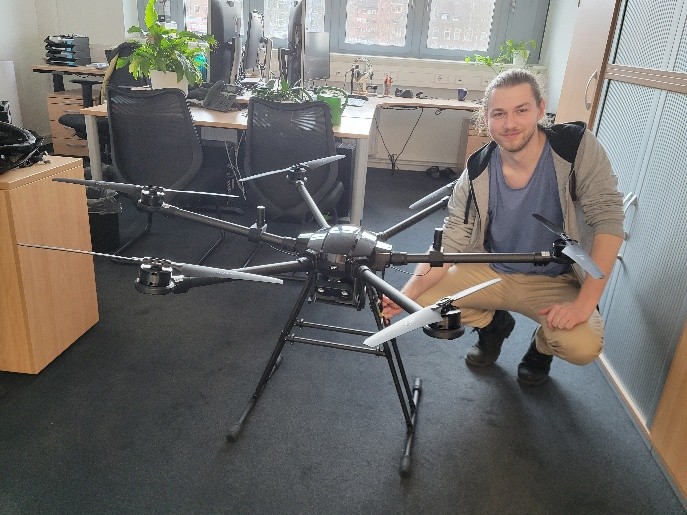Seminar "Selected Topics in Medical Signal Processing"
| Basic Information | |
|---|---|
| Lecturers: | Gerhard Schmidt and group |
| Semester: | Winter term |
| Language: | English or German |
| Target group: | Master students in electrical engineering and computer engineering |
| Prerequisites: | Fundamentals in digital signal processing |
| Registration procedure: |
If you want to sign up for this seminar, you need to register with the following information in the form
Please note that the registration period starts 03.10.2025 at 08:00 h and ends 24.10.2025 at 23:59 h. All applications before and after this registration period will not be taken into account. Registration will be possible within the before mentioned time by sending an e-mail with the desired seminar topic, name and matriculation number to Only one student per topic is permitted (first come - first serve). The registration is binding. A deregistration is only possible by sending an e-mail with your name and matriculation number to |
| Time: |
Preliminary meeting per arrangement with individual supervisor Written report due on 08.02.2026 Final presentations, 13.02.2026 (preliminary) |
| Contents: |
Students write a scientific report on a topic closely related to the current research of the DSS group. Potential topics, therefore, deal with digital signal processing related to medical signal processing. Students will also present their findings in front of the other participants and the DSS group. |
Topics for WS 25/26
| Topic title | Description |
|---|---|
| (Reserved) Approaches in Non-Invasive Electroanatomical Imaging |
Non-invasive electroanatomical imaging (EAI) can leverage advanced techniques to facilitate the reconstruction of electrical activity within the heart, providing valuable insights into cardiac arrhythmias and other conditions. In this seminar, you will explore and critically evaluate various machine learning-based approaches to EAI. Through a comparative analysis of research papers, you will investigate different algorithms, data preprocessing techniques, evaluation metrics, and validation strategies. Particular emphasis will be placed on the quality of data, the role of regularization in model training, the comparative performance of different methods, and their clinical applicability. You will assess the outcomes of these methods and how well they align with the demands of precision in non-invasive cardiac imaging. |
| Real-time Formant Extraction in Pathological Speech |
Formants, which are the resonant frequencies of the vocal tract, play a crucial role in speech production and perception. The real-time extraction of formants is especially important in applications such as pathological speech processing, where it aids in diagnosing and monitoring speech disorders like dysarthria, apraxia, and other conditions that affect speech clarity and quality. Various methods for real-time formant extraction, including both classical signal processing techniques and modern machine learning-driven approaches, should be compared. Understanding the advantages and limitations of these methods will help in selecting the most appropriate approach for different speech processing tasks. |
| (Reserved) Magnetic Localization for Ultrasound Imaging Applications |
Ultrasound imaging is a well known and widely applied medical technology. In recent years, the tracking of such examinations has gained in interest, as a full pose reconstruction (position and orientation) of the device enables different enhancement stages, from image fusion, guided interventions to freehand 3D imaging. This can achieved using different tracking approaches, such as optical or magnetic system among many others. In this seminar, you will perform a literature review researching different options for such systems, with a focus on magnetic approaches. Additionally, image enhancement options based on tracking should be looked into, as well as supplementary tracking information garnered from the recorded images. Your goal will be a comparison of multiple approaches, highlighting advantages and disadvantages as well as general preliminary assumptions and current limitations. |
| Overview: Magnetic Sensors for Movement Sensing |
Active magnetic motion sensing describes a movement feature reconstruction based on a combination of magnetic sensors and actuators. This approach is also called magnetic localization, magnetic motion tracking or indoor navigation. Size, bandwidth and magnetic noise are three common characteristics of magnetic sensors that are crucial for this type of application. In this seminar, you will do a literature review on suitable sensor types by finding at least nine further papers on the topic. You will first look for the abovement characteristics and than identify at least three more characteristics that are relevant for the application. Afterwards you will do a comparison of all identified sensor types regarding these six characteristics. |

 We were happy to welcome Sören Lange as a new member of our team at the beginning of the year. In his master’s thesis, he focused on signal processing for innovative underwater opto-acoustic sensor systems and has since then taken on new challenges in the field of magnetic sensors. His research interests span a wide range of topics, including signal processing and control engineering. With his friendly attitude, technical curiosity and expertise, Sören is a great addition to our team. We look forward to working with him!
We were happy to welcome Sören Lange as a new member of our team at the beginning of the year. In his master’s thesis, he focused on signal processing for innovative underwater opto-acoustic sensor systems and has since then taken on new challenges in the field of magnetic sensors. His research interests span a wide range of topics, including signal processing and control engineering. With his friendly attitude, technical curiosity and expertise, Sören is a great addition to our team. We look forward to working with him!